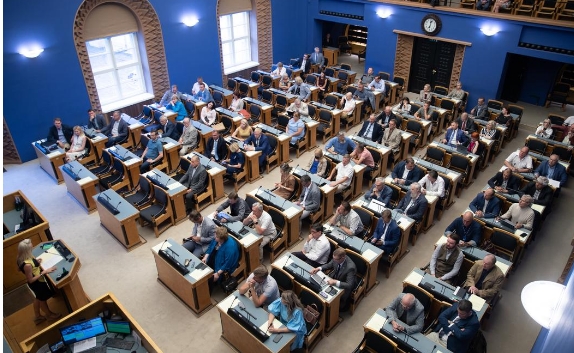
The Estonian parliament, the Riigikogu, on Wednesday officially recognised the mass deportation of the Crimean Tatars by the Soviet Union in 1944 as an act of genocide.
The statement passed in the 101-seat body with 83 votes in favor and eight abstentions. The decision comes at a time of renewed focus on Russia’s ongoing policies in Crimea, which the Riigikogu linked to Soviet-era atrocities. The statement
strongly condemn[s] the extermination and the mass deportation of the Crimean Tatars from their homeland on the Crimean Peninsula to the territories of Central Asia, which was planned and carried out by the totalitarian Soviet regime in 1944, and which resulted in the death of tens of thousands of Crimean Tatars as well as the entire nation losing their homeland and being subjected to brutal Russification for decades.
The Riigikogu drew parallels between the Soviet deportation and the current Russian occupation of Crimea, which began in 2014. It charges that “the Russian Federation is continuing the policy of genocide pursued by the Soviet Union… with the aim of destroying the identity and erasing the historical and cultural heritage of the Crimean Tatars.”
In 1944, approximately 200,000 Crimean Tatars were forcibly deported from their homeland by the Soviet regime under accusations of collaboration with Nazi forces during World War II. Tens of thousands died due to harsh conditions during the journey and subsequent resettlement in Central Asia. This experience is considered a historical and cultural disaster for the Crimean Tatar people, who were not allowed to return to their homeland until 1989.
The vote by the Riigikogu follows similar moves by other countries. Ukraine was the first to recognize the deportation as genocide in 2015, followed by Latvia and Lithuania in 2019, Canada in 2022, and Poland earlier this year.


